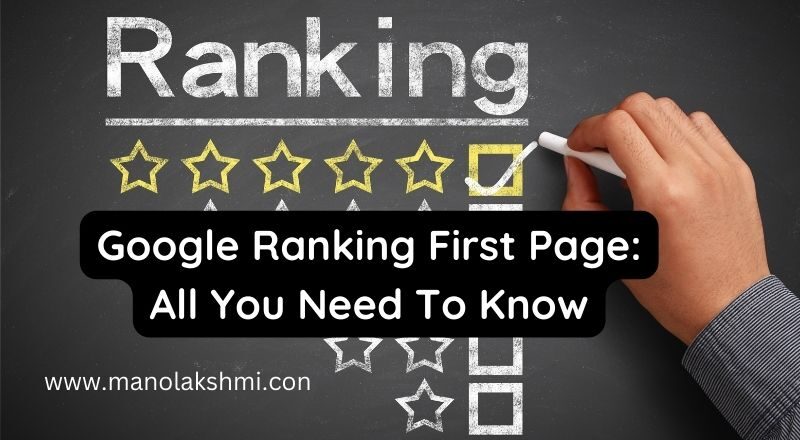What is Google?
Google is a multinational technology company that specializes in Internet-related services and products. It was created in 1998 by Larry Page and Sergey Brin while they were still in graduate school. students at Stanford University. Today, Google is one of the largest companies in the world, with a wide range of services and products that include search engines, online advertising technologies, cloud computing, software, and hardware. Some of Google’s most popular products include:
A Google Search: an online search engine that helps users to discover information.
In Google Maps: a web mapping service that provides satellite imagery, street maps, and panoramic views of streets
In Google Drive: Is a cloud storage service that enables users to save and retrieve files from any location.
Google Chrome: a web browser that is known for its speed, simplicity, and security
Android: an operating system for mobile devices that is used by millions of people around the world.
Google has had a significant impact on the way people interact with technology and access information online.
How does Google engine Work?
Google search engine is a powerful tool that most of us use on a daily basis, but have you ever wondered how it actually works?

Google search engine crawls the web by using automated software called spiders or bots. These bots crawl through web pages and follow links to find new pages to crawl.
Once the pages are crawled, Google indexes them by storing the information in a database. Google uses complex algorithms to determine which pages are most relevant and useful to users based on the search query.
When a user searches for something on Google, the search engine retrieves a list of pages from its vast index that match the user’s search query. Google then ranks the pages based on relevance and popularity.
Google’s ranking algorithms take into account hundreds of factors, including the content of the page, the structure of the website, and the quality of links pointing to the page.
To ensure that the search results are relevant and useful to users, Google constantly updates its algorithms to keep up with changes in the web and user search behavior.
In summary, Google search engine works by crawling the web, indexing pages, and ranking them based on relevance and popularity. This allows users to find the most useful and relevant information for their search queries.
Google Ranking First Page:
In the competitive online world, securing a spot on the first page of Google search results is of utmost importance. It has become a holy grail for businesses and websites aiming to increase their visibility, reach a wider audience, and ultimately drive more organic traffic. So, what exactly does it take to achieve this coveted position on Google’s first page? Let’s look at the key factors that can improve your possibilities.
High-Quality Content:
Content is king in the digital realm. Creating unique, informative, and engaging content that aligns with user intent is crucial. Focus on providing value to your audience by delivering well-researched, original, and relevant information. By doing so, you increase the likelihood of attracting backlinks and social media shares—important indicators to search engines of your content’s value and credibility.
Keyword Optimization:
Keywords are the foundation of SEO. Conduct thorough keyword research to identify the terms and phrases your target audience is using to find information related to your industry or niche. Integrate these keywords naturally into your content, including titles, headings, meta tags, and throughout the body of your text. However, be cautious not to overstuff your content with keywords. As it can be interpreted as spam by search engines.
Quality Backlinks:
A strong backlink profile plays a vital role in Google rankings. Backlinks are links from websites outside of your own. The goal is to acquire high-quality backlinks from trusted and relevant sources.

This can be achieved through guest posting, influencer outreach, content partnerships, and creating shareable content that naturally attracts links. Remember, it’s the quality and relevance of the backlinks that matter most, rather than the sheer volume.
Website Speed and Mobile-Friendliness:
User experience is a crucial ranking factor. Ensure that your website loads quickly across all devices, as slow-loading pages can negatively impact both user experience and search engine rankings. Mobile-friendliness is also essential, as an increasing number of users access the internet via mobile devices. Optimize your website design and layout for mobile screens, making it easy to navigate and interact with.
Google Technical SEO:
Technical aspects of your website play a significant role in search engine rankings. Ensure your site has clean and crawlable code, an XML sitemap, proper URL structure, and optimized meta tags. Implementing schema markup can also enhance your visibility in search results by providing additional context to search engines.
What is the Internal and Outbound link?
Internal links are links that take you to another page on the same website. They help to establish website structure and hierarchy, as well as guide users to related content on the same website.
Outbound links, on the other hand, are hyperlinks that direct visitors to another domain or website. They can help to establish credibility and authority for a website, as well as provide additional resources and information for users.
User Engagement Metrics:
Google takes into account various user engagement metrics to assess the relevance and quality of your website. Factors such as bounce rate, time on the page, and click-through rate can influence your rankings. Focus on creating engaging content that encourages users to stay on your site and explore further.
While these factors contribute to achieving a first-page ranking on Google, it’s important to note that search engine algorithms are complex and constantly evolving. To stay ahead, it’s essential to continuously monitor industry trends, adapt your strategies, and remain dedicated to providing valuable content and a seamless user experience.
Read more: Education Improved Advanced Technology Facility
